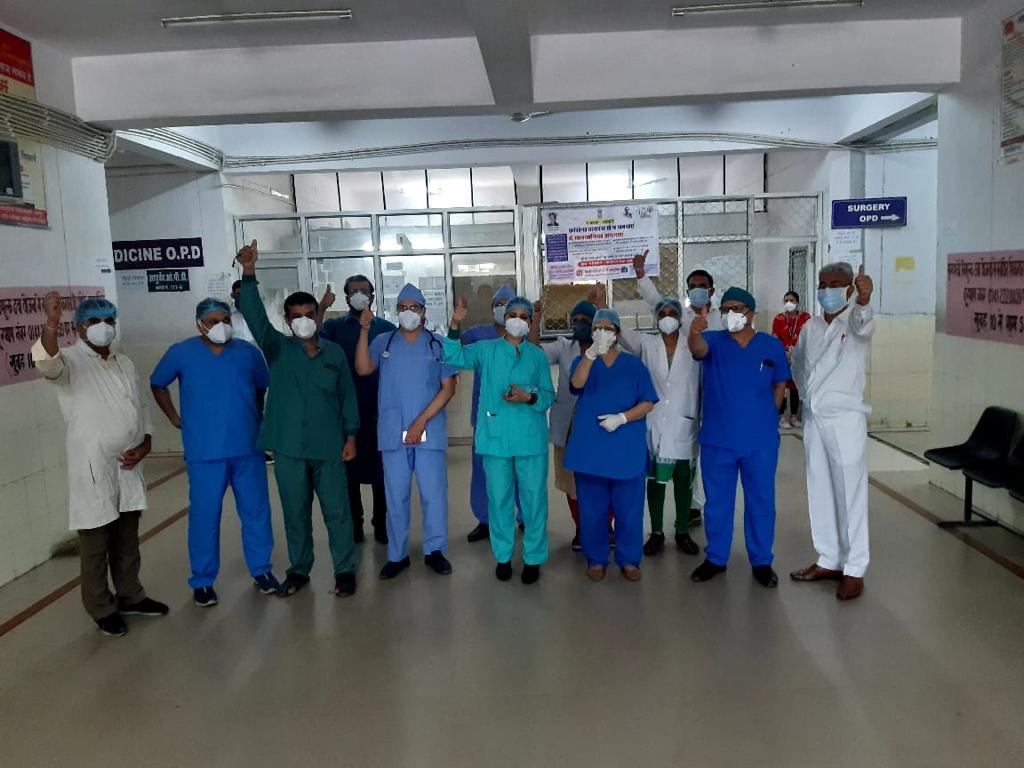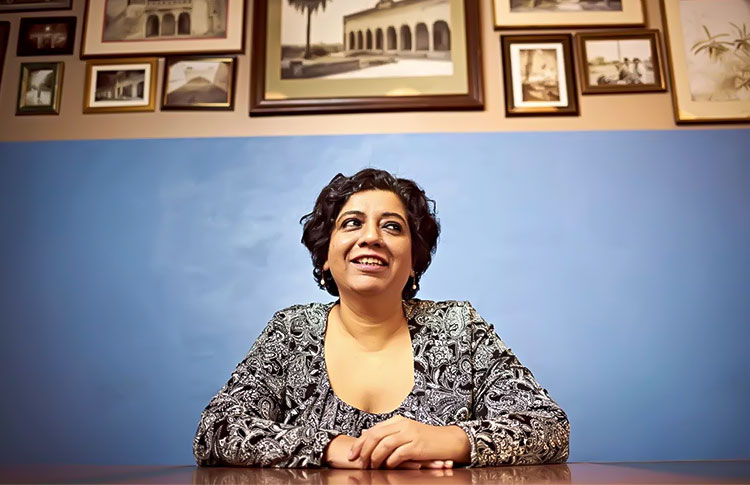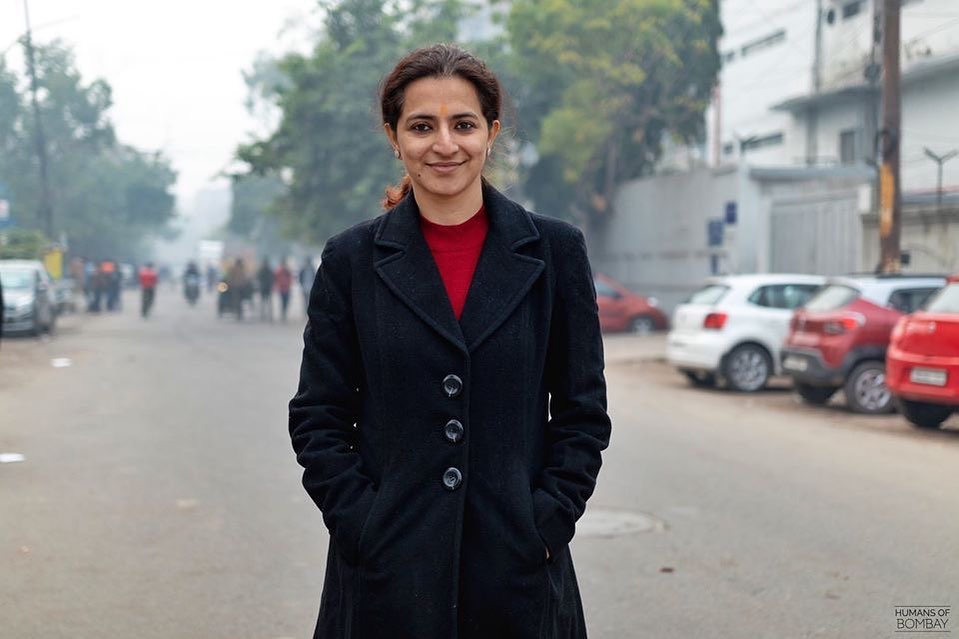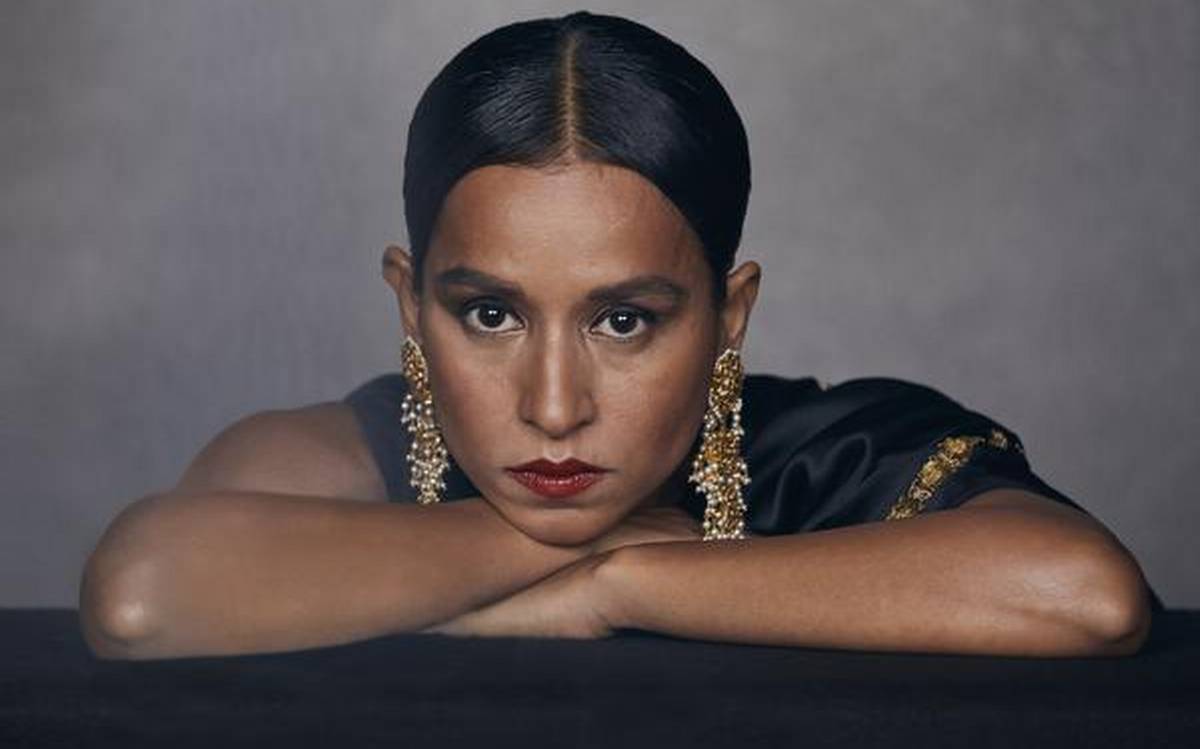Filmmaker & Politician Yasmin Kidwai Takes Us On The Sets Of The Stories She Could Never Shoot
- IWB Post
- July 4, 2017

For most of us, the definition of films is limited to blockbuster entertainers. What if I acquainted you to a woman who has spent most of her life producing documentaries discussing not only burning issues but many topics that get swept under the carpet?
Yasmin Kidwai knew what she was taking up when she voluntarily gave up her corporate career for a personal sense of satisfaction. The award-winning filmmaker has produced over 50 documentaries highlighting women empowerment, reservation, tourism, and more.
We went behind the scenes with Yasmin to find out more about her reel & real life.
Me: How did you crack the code of working with Simi Garewal’s team?
Yasmin: When Simi Garewal was working on one of her earliest Documentaries, I was still in school. I remember her visiting Delhi quite often. Back then, I was either in class 8 or 9. I got in touch with her and asked her if I could help her in any way.
She asked me to run an errand, do a little survey on what the common people thought of Rajiv Gandhi. I sincerely ran around, talking to different people: rickshaw walas, auto drivers, I knocked the neighbors’ doors, asked my family.
I scribbled everything on scraps of paper and handed them over to her. That was my first assignment with Simi Garewal.
I grew up and started working with NDTV. Honestly, even though Delhi was all about hardcore news, journalism didn’t seem to interest me. I quit my job and moved to Bombay. There, I got in touch with Simi, and well, she remembered me.
And gradually, she started her own production house. Yasmin’s life is not limited to Spring Box Films. Along with her production company, Yasmin runs House of Qidwa, a clothing line, and is an elected counselor from South Delhi.
Me: I really want to know! How do you do so many things at a time? What is your support system? Do you have a brainstorming team?
Yasmin: I don’t have a vast team that takes care of everything. My brother and I work together. We have a great sense of understanding amongst ourselves, and I think that’s a given since you’ve known each other your entire lives so you can get a lot more done, too.
It does help that you can trust that person completely. It is not a one-man-show. The team effort has played a huge role in bringing us where we are today, and it will continue to do so.
Me: Was financial stability a struggle for you?
Yasmin: When I chose documentary filmmaking, I knew what I was getting into. Giving up on the corporate sector meant giving up on a lot of money. I wanted to have a voice of my own, which is impossible in a corporate setup.
One day, a friend told me, “Why to limit yourself to the thought that you cannot make money with documentary films?”
So, I’ve to keep reminding myself that I can’t do everything for free and that I can’t undervalue or underpay myself. I also need to remind others of the same thing.
Me: One story you couldn’t record but is always playing in your mind?
Yasmin: There are many, actually. The first is of starting my life as a documentary filmmaker. I researched and recced a documentary on female dacoits in M.P. I really wish I could revisit it. Then, there are so many stories of women and the complexities that they face. It’s not humanly possible to put them all together in one film. You can highlight a few things, but we all know a woman’s mind is much more than that.
Empowerment has many stories attached to it. For example, the Purdah doesn’t just include the Burkah, it also contains many other forms of veils, including the ghoonghats. I’d like to revisit what it means today.
Heck, there are so many places I visit for shoots and am amazed by the locations. I always tell myself to come back, but it never happens.
Well, if you want, you will go back one day, Yasmin! It always works out, in the end.
Me: A pattern you follow while writing the script for your films?
Yasmin: The only pattern I follow is no pattern.
Me: Who disturbs you the most when you’re working on your story from home?
Yasmin: Initially, it was my mom, back when I used to live with my parents. She would not understand why I’d work beyond a certain time. And, she couldn’t drive, so she’d disturb me the most!
There have been times when I’ve worked out of a garage, too. At one time, I wanted an office far away from home so that my kids won’t disturb me, haha… but now in a full circle… I love working out of home whenever I can.
Me: How do you discipline yourself to keep going?
Yasmin: There’s no time to get distracted, really. When you’re in charge, you don’t need discipline. For example, when I was pregnant, I read a hundred books about “how to manage time with children,” plus, I just couldn’t figure out how to wake up early, even if I tried doing it every day.”
Today, I laugh about it, because I wake up at the crack of dawn.
Me: How do you divide the time between House of Qidwa, Spring Box, and Politics?
Yasmin: I try telling myself that I’ll keep morning, afternoon, evening shifts, but it never works that way. Things cross paths, and you just have to find yourself a way around all of it.
Me: They say an artist thinks from her heart. How do you keep it away during tackling politics?
Yasmin: The connotation of the word ‘politics’ has always been associated with negativity. While on the other hand, documentary filmmaking is all about meeting people, building relationships with people! Everything is about relationships. And, that’s how I think about Politics, too. To be honest, I’m the same person whether it’s as a politician or a filmmaker.
- 0
- 0












